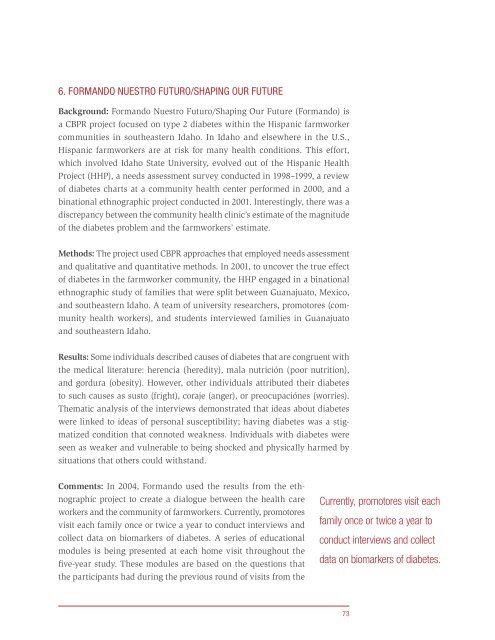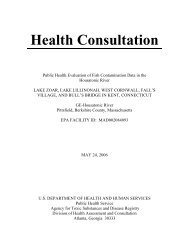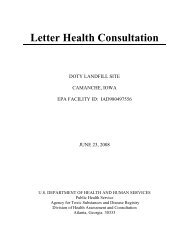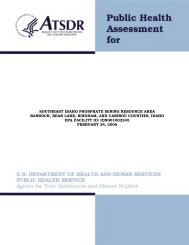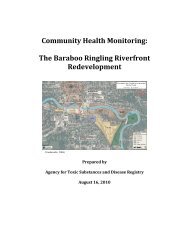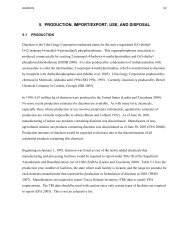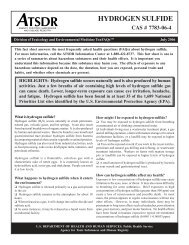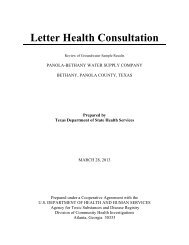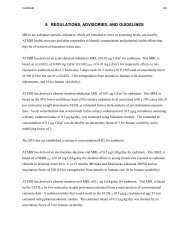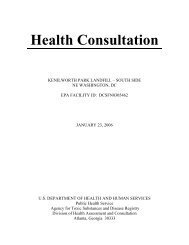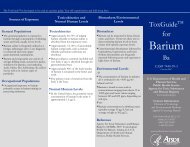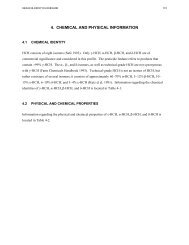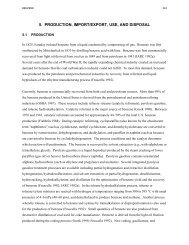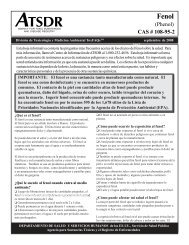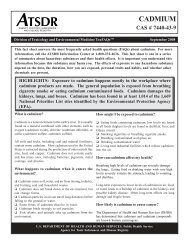Principles of Community Engagement (Second Edition)
Principles of Community Engagement (Second Edition)
Principles of Community Engagement (Second Edition)
Create successful ePaper yourself
Turn your PDF publications into a flip-book with our unique Google optimized e-Paper software.
6. FORMANDO NUESTRO FUTURO/SHAPING OUR FUTURE<br />
Background: Formando Nuestro Futuro/Shaping Our Future (Formando) is<br />
a CBPR project focused on type 2 diabetes within the Hispanic farmworker<br />
communities in southeastern Idaho In Idaho and elsewhere in the U S ,<br />
Hispanic farmworkers are at risk for many health conditions This effort,<br />
which involved Idaho State University, evolved out <strong>of</strong> the Hispanic Health<br />
Project (HHP), a needs assessment survey conducted in 1998–1999, a review<br />
<strong>of</strong> diabetes charts at a community health center performed in 2000, and a<br />
binational ethnographic project conducted in 2001 Interestingly, there was a<br />
discrepancy between the community health clinic’s estimate <strong>of</strong> the magnitude<br />
<strong>of</strong> the diabetes problem and the farmworkers’ estimate<br />
Methods: The project used CBPR approaches that employed needs assessment<br />
and qualitative and quantitative methods In 2001, to uncover the true effect<br />
<strong>of</strong> diabetes in the farmworker community, the HHP engaged in a binational<br />
ethnographic study <strong>of</strong> families that were split between Guanajuato, Mexico,<br />
and southeastern Idaho A team <strong>of</strong> university researchers, promotores (community<br />
health workers), and students interviewed families in Guanajuato<br />
and southeastern Idaho<br />
Results: Some individuals described causes <strong>of</strong> diabetes that are congruent with<br />
the medical literature: herencia (heredity), mala nutrición (poor nutrition),<br />
and gordura (obesity) However, other individuals attributed their diabetes<br />
to such causes as susto (fright), coraje (anger), or preocupaciónes (worries)<br />
Thematic analysis <strong>of</strong> the interviews demonstrated that ideas about diabetes<br />
were linked to ideas <strong>of</strong> personal susceptibility; having diabetes was a stigmatized<br />
condition that connoted weakness Individuals with diabetes were<br />
seen as weaker and vulnerable to being shocked and physically harmed by<br />
situations that others could withstand<br />
Comments: In 2004, Formando used the results from the ethnographic<br />
project to create a dialogue between the health care<br />
workers and the community <strong>of</strong> farmworkers Currently, promotores<br />
visit each family once or twice a year to conduct interviews and<br />
collect data on biomarkers <strong>of</strong> diabetes A series <strong>of</strong> educational<br />
modules is being presented at each home visit throughout the<br />
five-year study These modules are based on the questions that<br />
the participants had during the previous round <strong>of</strong> visits from the<br />
Currently, promotores visit each<br />
family once or twice a year to<br />
conduct interviews and collect<br />
data on biomarkers <strong>of</strong> diabetes.<br />
73


